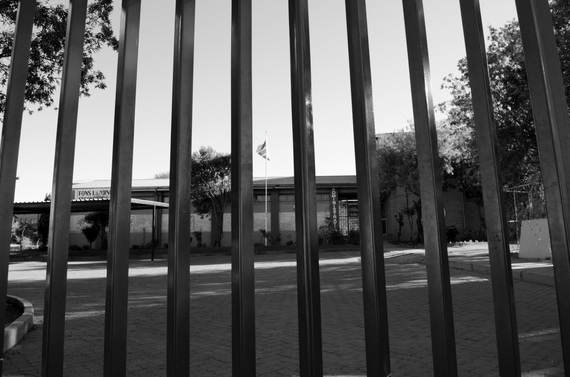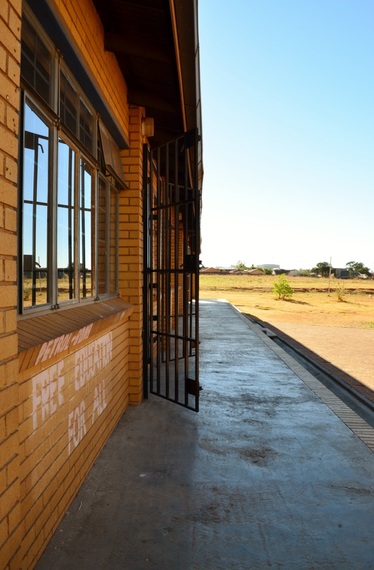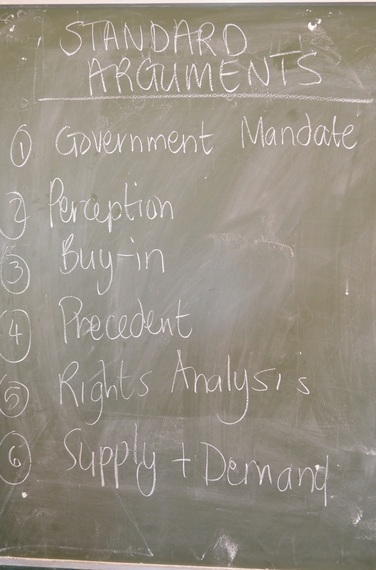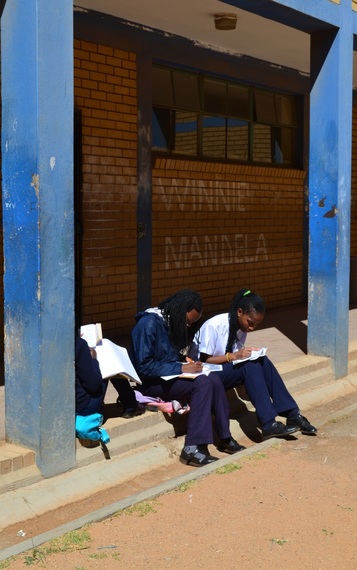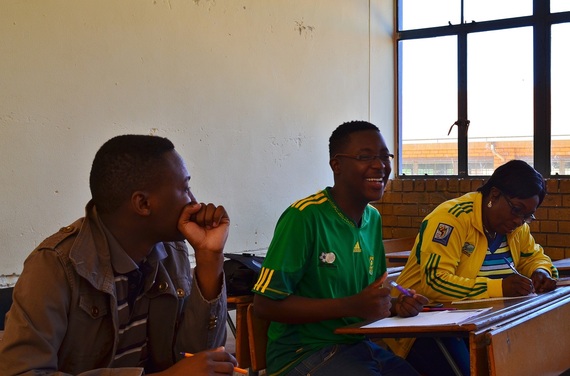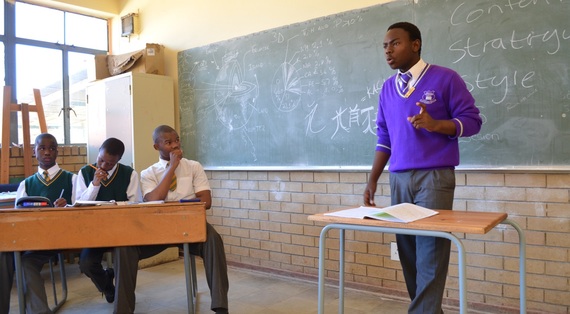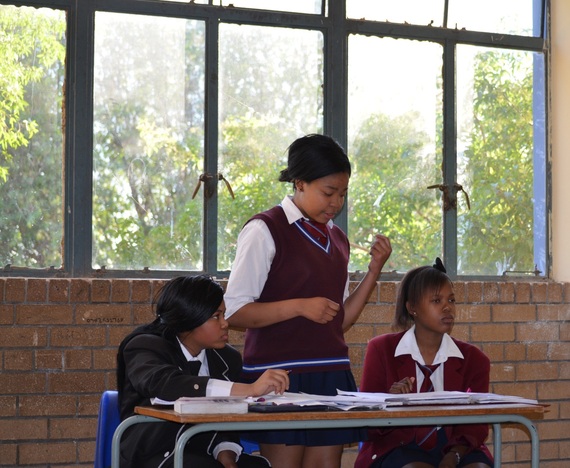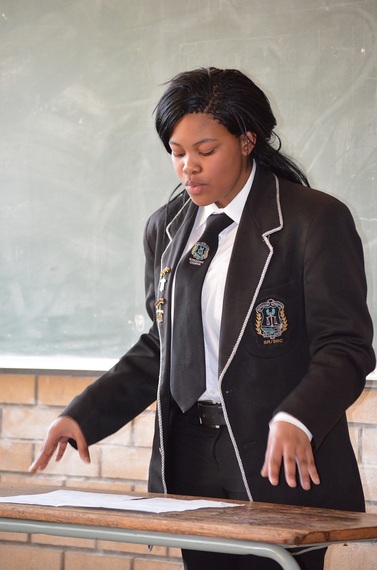The South African flag flies at Fons Luminis School in Soweto
Despite the persistent portrayals of Africa as under-developed, uneducated and uninformed, debating has strong support in many African countries, including Ghana, Botswana, Nigeria, and Swaziland. In South Africa, debating has a huge groundswell of support in our private and state schools.
Historical and social awareness slogans are painted on the school buildings
I'd like to share with you some photos from the Constitution Hill Debating League, a high school initiative sponsored by Constitution Hill and run by the Tehuti Institute. It's one thing to hear that good things happen, it's another to see it.
Debate training was provided
The program targets school in areas disadvantaged by Apartheid. Schools from the inner city of Johannesburg came through. Schools that cater to large informal settlements in Diepsloot and Orange Farm participated. Established township schools in Alexandra and Soweto sent speakers. Some came from as far out as Carltonville, Brakpan, Roodeport and Thembisa. It was 30 schools in all.
Teams get one hour to prepare their case and speeches
These young people gave up their weekends entirely by choice, out of a love of debating and a desire to learn. They put on their school uniforms, travelled early in the morning and left with the sunset. Just so we're clear, there were no prizes except for a week's work experience with a law firm.
Adjudicators wait to open the debate
To firmly counter the fear that we have an entirely disengaged or very conservative youth, I'd like for you to consider the kind of issues tabled for the Junior speakers:
•This house would abolish abortion,
•This house would ban lobola (the customary bride price paid to her father by her fiancée),
•This house believes that social networking sites have done more harm than good for social interaction,
•This house believes that politicians' personal lives should be excluded from the media,
•This house would abolish advertising aimed at children,
•This house would reintroduce corporal punishment in schools and,
•This house believes that government should make it compulsory for students to study an indigenous African language in primary and secondary education.
The opposition speaks in a legalise prostitution debate
Meanwhile the Senior category was grappling with:
•This house would legalize prostitution,
•This house supports a ban on alcohol advertising,
•This house would compel leaders of political parties running for government to publicly declare their finances,
•This house would legalize the sale of human organs,
•This house would abolish tribal courts (decisions are made by a Chief and his council),
•This house regrets the rise of mega-churches in Africa and,
•This house would only allow female judges in cases of women and child abuse.
A point of information being given to a speaker on the floor
The motions for the final were this house would abolish private schools and this house believes that strike action has done more harm than good for trade union members in South Africa. The entirely voluntarily nature of participation and the high level of engagement with such serious and often controversial issues speaks for itself as to the nature of these young people. I'm not saying there's no cause to worry about a reluctance to engage in our societies, especially about customary and religious issues, simply that there's more to the picture than that. And these young people are leading the charge for change.
The reply speech closes a debate
For anyone curious about specifics: topics begin with 'This house,' because of a holdover from debates in parliament. A 'point of information' from the other side interrupts the speaker for up to 15 seconds, after which time they must respond. Debates are scored across three categories and there is a marking rubric used. This style of debate is called World School's Style Debating. It is the format currently used to compete globally at high school level.
Thanks to Ms. Ledwaba of Fons Luminis School and the Tehuti organising committee who volunteered their time: A Dey Van Heerden, C Hojem, P Mangondo, D Pillay, T Ramafoko, J Swanepoel and A van der Laan. Photos by V Nepaul.
